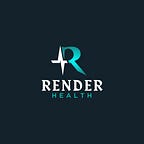The Importance of Electronic Medical Record?
The use of Electronic Health Record is on the rise, this is because EHR offers many benefits that not only keep medical practices in check but keeps them approved of continual changes in the healthcare system. Although we’ll discuss some of its advantages in this article. But first, let’s see what an EMR is?
WHAT IS EMR?
An Electronic Medical Record (EMR) is a digitilized form of a medical paper record of a patient. Technology is taking over different industries and it is not leaving the health industry behind. A patient does not need to have their records on paper anymore, but can easily access their records in real-time, by authorized users in digital form. It contains comprehensive and accurate details of the patient’s medical history, diagnosis, allergies, laboratory test results and medications. Electronic Medical Record also provides doctors and care providers tools that guide their decisions while providing care for their patients. Check out some benefits of EMR below:
Increases Quality of Care
EMRs increases the quality of care provided to patients by enabling quick access to patient medical records resulting in more efficient care. Patients now have access to their medical information like diagnosis, lab results, treatment plans and possibly doctor notes that will be sent to them after a teleconsultation session via their patient portal. It also provides physicians with health analytics that can help predict diagnosis and recommend potential treatment. Therefore both physicians and patients can track individuals health progress and encourages preventive care.
Improves Comprehensive and Accurate Patients Information
EMRs has proven to be a better replacement to paper medical records, this is because it reduces errors caused by bad and illegible handwriting of physicians, poor standardization of documents and records keeping, alterations of sensitive data. According to experts, EMRs has contributed to about 30% reduction in medical error. One of the characteristics of good EMRs is that not only it ensures the safety of the patient, it also allows the frequent update of patient information, connects every clinician involved in the patient healthcare, encourages continuity which means a patient doesn’t have to start from the scratch if they switch to a new health care provider.
Increases Efficiency and Saves Time
Going through tons of paper stacked in the record room, patient waiting to receive physical cards in the waiting room can affect patient receiving immediate care especially during an emergency, therefore EMRs eliminates this waiting time and speed up appointments. Facilities can also get their EMRs customized to meet their needs which enables a seamless transition to a new system virtually.
Transfer of Health Record
EMRs with interoperability is a huge asset. It basically means that data can be transferred properly, without missing information. Doctors can now receive patient’s data in real time and make informed decisions about the patient’s health without waiting on paper records or scanned information. The information is readily available in a searchable form that eliminates hunting through complex charts and illegible handwriting. Patients can easily access their health record in case they switch to new provide and this speedy transfer of information has a real impact on the patient’s health especially during emergency.-
Today’s world is embracing the digital life, therefore it’s time for healthcare systems and patients to embrace it.
